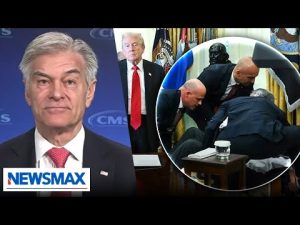The conversation surrounding the Trump family often circles back to its most publicized members. In the political landscape, perception frequently overshadows reality, and individuals are characterized by media-driven narratives. Such is the case with the Trump family. They are seen through lenses polished by both praise and criticism, sometimes in starkly exaggerated measures. The focus often aligns with Donald Trump and his vocal expressions. Yet, today’s political discourse offers a glimpse into another Trump, a quieter voice within the household: Barron Trump.
When observers discuss Barron Trump, a certain air of mystery surrounds him. Unlike his more outspoken family members, Barron remains mostly in the background. Despite this tendency, he is not exempt from scrutiny or speculation. A particular incident during the 2020 presidential debates highlighted how quickly narratives can form around the smallest gestures. Allegations circulated, suggesting that Barron criticized his father for not allowing Biden to speak during a debate, defending Biden’s right to communicate. The interpretation of the incident underscores the media landscape’s readiness to sculpt narratives around fleeting moments.
This kind of story reflects today’s media landscape, hypercharged and ready to pounce on almost any fleeting image or incomplete scene. In reality, Barron Trump, like many young adults, grapples with growing up under a powerful family’s spotlight. Unlike his elder siblings, Barron has largely avoided the fiercer aspects of public life. The narrative sewn by those who know him paints a picture of a young man who is intelligent and respectful, someone potentially laden with expectation but not yet ready to take the center stage of the political circus.
These discussions sometimes cast Barron as the “quietest Trump,” a descriptor indicating a sense of reserve, careful thought, and perhaps wisdom beyond his years. The focus often lies on his youth, a virtue providing both innocence and strategic foresight. His age seemingly grants him a buffer where his few public actions garner more intrigue than critique. Speculation, rightly or otherwise, positions him as a future figure who might take a decided stand when the time arises, blending wisdom with youthful diplomatic grace.
In a world obsessed with the brash and bold, it is worth considering the value of different approaches to public life. As Barron navigates his path—marked by his own decisions and distinct from the career-driven agendas of his family—his story may evolve to contrast sharply with the more familiar tales of the Trump legacy. In this, Barron offers a quieter narrative arc, one that values contemplation and eventual intention, a testament to patience in an impatient world.







